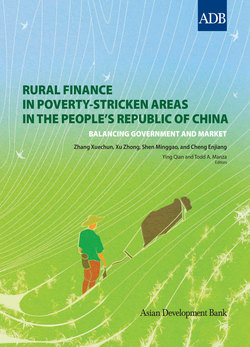Читать книгу Rural Finance in Poverty-Stricken Areas in the People's Republic of China - Xuechun Zhang - Страница 13
На сайте Литреса книга снята с продажи.
Industrialization: From Farmers to Migrant Workers
ОглавлениеEven in the command economy, the importance of agriculture made it one of the central government’s top priorities. However, farmers failed to reap real benefits. Price controls were created to support industrial development, farmers and agriculture were exploited, and financial resources were mostly monopolized by the state. In addition, farmers were bound to the land and could leave neither their land nor their hometown. A series of institutional arrangements was erected to achieve these objectives.
The emergence of township and village enterprises in coastal areas enabled farmers to go from subsistence to prosperity
After over 2 decades of rapid growth, a solid industrial foundation has created the capacity to support agriculture. However, the industrial support of agriculture is intended not to place farmers back on the land but to improve their lives with limited fiscal subsidies. A more important aspect of such support is to create more jobs for farmers, enabling them to become migrant workers.
Industry can support agriculture either by transferring funds from industry to agriculture or by transferring farmers from agriculture to industry. The experience of township and village enterprises in the central and western PRC in the late 1980s and early 1990s showed that industrialization in these regions resulted in large numbers of nonperforming loans in the finance sector. This mistake should not be repeated. Therefore, farmers must be transferred from agriculture to industry, which means transferring farmers from rural areas in the central and western PRC to coastal regions and urban areas. Estimates show that about 300 million people will have been released from agriculture by 2020. Assuming that one-third of the resulting migrant population concentrates in coastal regions, these regions will attract about 100 million new migrant workers in the next 10 years, enabling the PRC to continue with labor-intensive industries but also posing new challenges.
The change of status from migrant worker to new urban resident can directly improve farmer’s welfare
This does not mean that rural areas do not need more investment, but it does mean that the investment should be focused. First, fiscal transfer payments and new investment should focus on providing public services, including basic education, skills training, a minimum standard of living, and assistance for the destitute. The provision of such public services can help some farmers to access jobs and to avoid sliding into poverty because of illness or disaster. Second, farmers engaged in the handicraft industry or in peddling should be exempt from taxes and fees, to encourage capable farmers to start their own businesses. Finally, financial institutions should provide credit to farmers with a certain acreage of farmland or particular animals.
